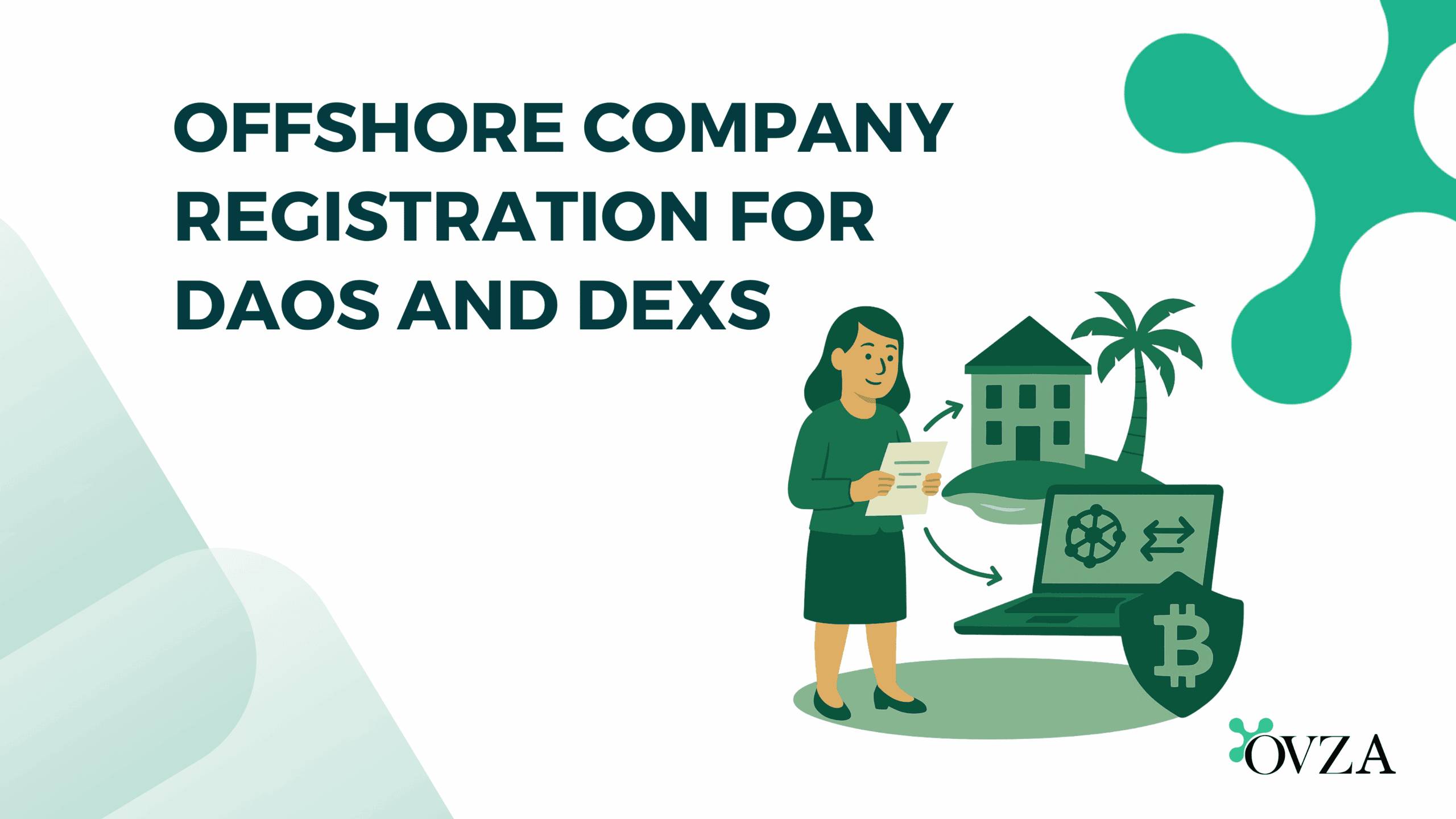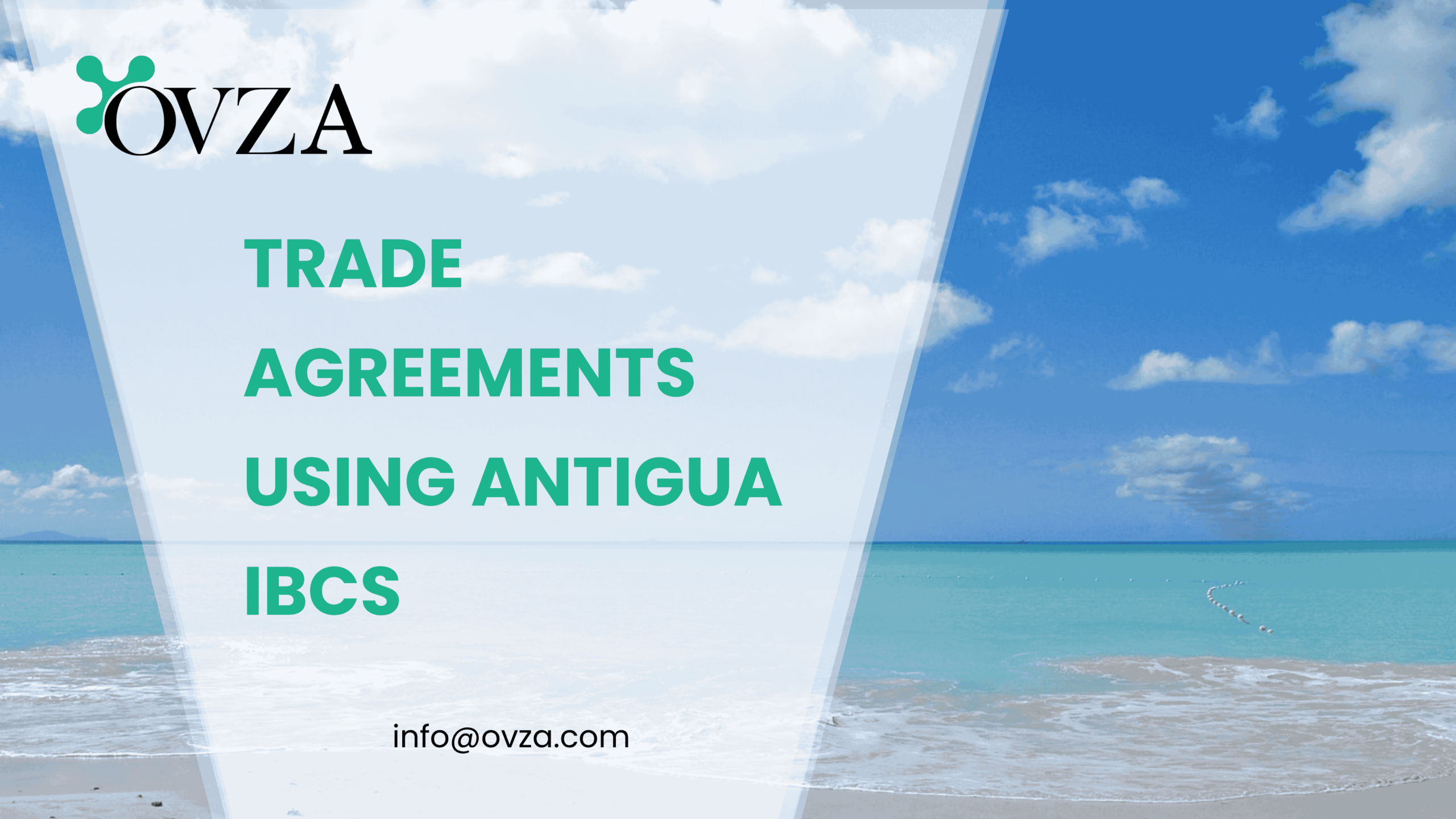Offshore company registration for DAOs and DEXs provides a legal structure for decentralized projects to operate globally with liability protection. However, despite their decentralized architecture, DAOs and DEXs often require a legal wrapper to manage interface with centralized systems, including banking, contractual obligations, and regulatory compliance. Offshore company registration for DAOs and DEXs has emerged as a strategic legal solution, enabling founders and contributors to navigate global regulatory uncertainty while maintaining operational flexibility.
A properly structured offshore entity can serve as a limited liability wrapper around a DAO or DEX, helping manage token issuance, governance contracts, smart contract deployment, and treasury management. With growing scrutiny from jurisdictions like the United States and the European Union, incorporating in a crypto-friendly offshore jurisdiction not only limits exposure to enforcement actions but also offers a compliant structure for future fundraising, licensing, or acquisition. Among available options, the Marshall Islands stands out as an ideal jurisdiction, being the first to offer a legally recognized structure for DAOs under its Non-Profit LLC Act.
Legal Role of Offshore Companies in DAO and DEX Architecture
Although DAOs and DEXs are built on decentralized protocols, many of their core operations require traditional legal frameworks. For instance, signing contracts with auditors, listing on centralized exchanges, or maintaining custody partnerships typically necessitates a legal entity. Offshore company registration for DAOs and DEXs offers a way to interface with these traditional systems without subjecting the protocol’s entire governance structure to high-tax or high-regulation jurisdictions.
Offshore entities such as LLCs or foundations can assume legal liability on behalf of the DAO community, holding IP (such as the platform’s name or front-end code), managing software upgrades, and handling fiat transactions where necessary. This approach not only simplifies compliance but also separates personal and protocol liability—especially critical for contributors and token holders in high-risk jurisdictions.
In this regard, the Marshall Islands DAO LLC has become a leading solution. Unlike traditional offshore jurisdictions, the Marshall Islands allows DAOs to register as limited liability companies with smart contract-based governance encoded directly into their operating agreement. This innovation bridges the legal gap between decentralized blockchain governance and real-world legal recognition, making the Marshall Islands ideal for DAOs looking to reduce regulatory friction.
Structuring DAOs and DEXs Through Offshore Company Registration
Offshore company registration for DAOs and DEXs is rapidly becoming a preferred legal pathway for decentralized protocols to gain legitimacy while preserving operational flexibility. As regulatory scrutiny increases globally, decentralized autonomous organizations (DAOs) and decentralized exchanges (DEXs) must navigate the challenge of legal enforceability, liability shielding, and banking access without compromising their distributed ethos. Offshore jurisdictions offer a neutral, adaptable legal framework that can serve as a foundation for DAO governance and DEX operation, especially in cases involving token issuance, protocol fees, or treasury management.
Unlike traditional corporations, DAOs are not managed by a central board or executives. Instead, they rely on smart contracts and community governance. This innovative structure often lacks legal personality, which can limit their ability to sign contracts, open bank accounts, or engage in dispute resolution. Offshore company registration for DAOs and DEXs addresses this problem by anchoring the DAO to a recognized legal entity — often a foundation or limited liability company (LLC) — that can represent its interests in legal or commercial matters without interfering with its decentralized operations.
The Marshall Islands is one of the few jurisdictions that has introduced legislation specifically allowing DAOs to register as limited liability companies under its DAO LLC Act. This law enables a DAO to operate as an LLC while referencing its governance structure through smart contracts, offering unprecedented legal recognition for fully decentralized operations. This makes the Marshall Islands particularly ideal for DAOs looking to combine autonomy with compliance. Offshore company registration for DAOs and DEXs in the Marshall Islands provides an efficient way to satisfy banking, tax, and legal expectations without altering the code-based nature of the protocol.
In the case of decentralized exchanges, registering an offshore entity allows developers to isolate liability, manage operational funds, enter licensing relationships, and contract service providers. Even where the matching engine or token custody is decentralized, the DEX front end or DAO-controlled treasury may benefit from having an incorporated entity. This is especially relevant for user-facing interfaces that interact with fiat ramps, data providers, or listing aggregators.
Key Benefits and Drawbacks of Offshore Company Registration for DAOs and DEXs
Offshore Company Registration for DAOs and DEXs provides several practical benefits that allow decentralized platforms to operate more securely, more compliantly, and with better access to financial infrastructure. However, these advantages come with trade-offs that founders and tokenholders must understand when structuring legally offshore.
1. Legal Recognition for Smart Contracts and Governance Logic
When a DAO incorporates as a legal person—especially through an entity such as a Marshall Islands DAO LLC—its on-chain logic can be recognized as a legitimate method of internal governance. The operating agreement or articles can explicitly defer control to tokenholder voting, thereby protecting contributors from fiduciary liability while maintaining decentralization. This makes offshore company registration for DAOs and DEXs not only a technical upgrade but a legal necessity for long-term scaling.
2. Banking and Fiat Onboarding Access
Most fiat onramp and payment providers require a legal entity for onboarding. With offshore company registration for DAOs and DEXs, founders can apply for international accounts, EMIs, and payment gateways. This allows the DAO or DEX to accept stablecoins, wire transfers, and even process payments for services or token sales, bridging the gap between decentralized finance and traditional finance.
3. Tax Efficiency and Privacy
Jurisdictions like the Marshall Islands, Seychelles, and BVI do not impose corporate income tax on foreign-source revenue. This means offshore company registration for DAOs and DEXs can dramatically reduce tax exposure for token issuers and liquidity providers, especially when structured with professional tax advice. Additionally, many of these jurisdictions offer privacy by design, such as confidential ownership and limited reporting requirements, allowing DAOs to operate without excessive public disclosures.
Considerations and Potential Drawbacks
- Regulatory Ambiguity
Despite the benefits, many regulators worldwide still struggle to classify DAOs and DEXs. Even with an offshore wrapper, activities such as token issuance or exchange operations may fall under securities or AML regulation in user jurisdictions. Therefore, offshore company registration for DAOs and DEXs should be paired with legal opinions, compliance layers, and internal controls. - Perceived Lack of Transparency
While privacy is often seen as a benefit, it can also raise red flags for partners, institutional investors, or exchanges. DAOs that aim to grow and scale must weigh the optics of offshore incorporation—especially when working with high-risk jurisdictions or layering entities across borders. - Governance Complexity
Finally, embedding DAO governance rules into legal documents is not trivial. If smart contracts evolve or if token mechanics change, the corporate documents may need to be amended accordingly. This introduces complexity and requires ongoing coordination between developers and legal counsel.
Offshore company registration for DAOs and DEXs is not a shortcut—it is a structuring tool that must be aligned with the protocol’s long-term governance, financial, and compliance strategies. For most decentralized projects, especially those handling large treasuries, issuing tokens, or integrating with fiat systems, forming a DAO LLC in the Marshall Islands or a similar jurisdiction offers the most pragmatic and legally sound solution.
Conclusion
Offshore Company Registration for DAOs and DEXs provides legal structure, liability protection, and operational legitimacy for decentralized platforms. Jurisdictions like the Marshall Islands lead the way by offering DAO-specific frameworks that support token governance and legal recognition. For DAOs and DEXs seeking to scale while remaining compliant, offshore registration is not just an option—it’s a strategic necessity.
Disclaimer: The information provided on this website is intended for general reference and educational purposes only. While OVZA makes every effort to ensure accuracy and timeliness, the content should not be considered legal, financial, or tax advice.










